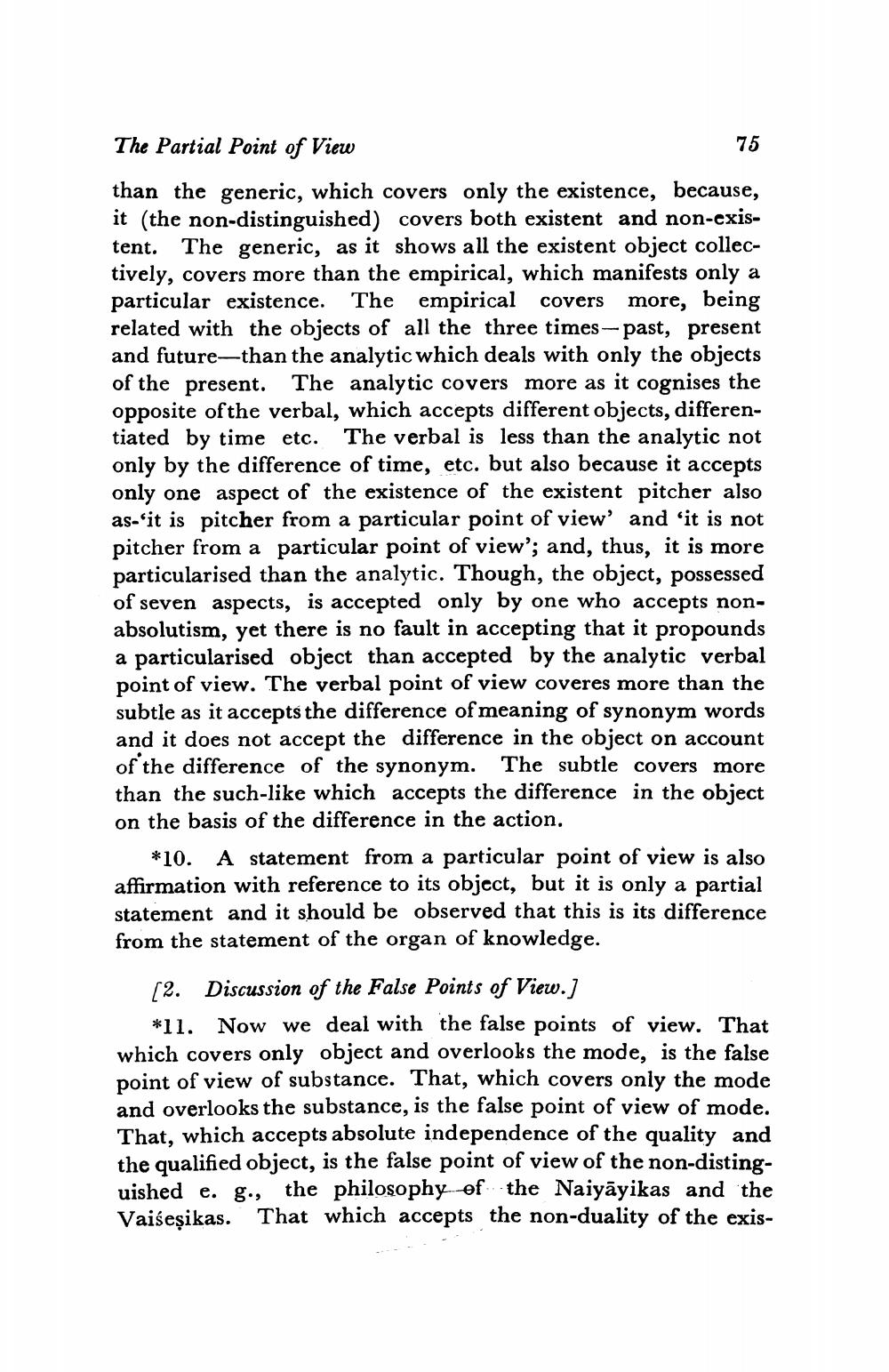________________
75
The Partial Point of View than the generic, which covers only the existence, because, it (the non-distinguished) covers both existent and non-existent. The generic, as it shows all the existent object collectively, covers more than the empirical, which manifests only a particular existence. The empirical covers more, being related with the objects of all the three times - past, present and future—than the analytic which deals with only the objects of the present. The analytic covers more as it cognises the opposite of the verbal, which accepts different objects, differentiated by time etc. The verbal is less than the analytic not only by the difference of time, etc. but also because it accepts only one aspect of the existence of the existent pitcher also as- it is pitcher from a particular point of view' and 'it is not pitcher from a particular point of view'; and, thus, it is more particularised than the analytic. Though, the object, possessed of seven aspects, is accepted only by one who accepts nonabsolutism, yet there is no fault in accepting that it propounds a particularised object than accepted by the analytic verbal point of view. The verbal point of view coveres more than the subtle as it accepts the difference of meaning of synonym words and it does not accept the difference in the object on account of the difference of the synonym. The subtle covers more than the such-like which accepts the difference in the object on the basis of the difference in the action.
*10. A statement from a particular point of view is also affirmation with reference to its object, but it is only a partial statement and it should be observed that this is its difference from the statement of the organ of knowledge.
[2. Discussion of the False Points of View.]
*11. Now we deal with the false points of view. That which covers only object and overlooks the mode, is the false point of view of substance. That, which covers only the mode and overlooks the substance, is the false point of view of mode. That, which accepts absolute independence of the quality and the qualified object, is the false point of view of the non-distinguished e. g., the philosophy of the Naiyāyikas and the Vaišeşikas. That which accepts the non-duality of the exis




